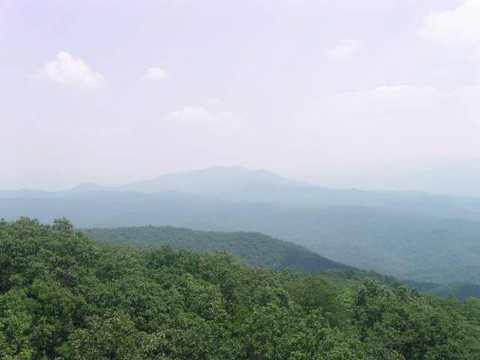Conservation groups are cheering a federal judge's ruling that could provide more definite protection of the air over Great Smoky Mountains National Park.
The question before U.S. District Judge Lacy Thornburg was, to what extent must Duke Energy control emissions from its Cliffside coal-fired power plant in western North Carolina? The energy company has been working on an 800-megawatt addition to that plant, but the conservation groups called on the judge to halt the project "because their air permit does not adequately control dangerous air emissions, including mercury and dozens of carcinogens such as arsenic, chromium, and dioxin."
In a ruling handed down Wednesday, the judge gave Duke Energy 60 days to completely analyze the expected emissions of such toxic emissions as mercury and lead.
The National Parks Conservation Association "applauds the North Carolina court decision requiring Duke's Cliffside coal-fired power plant to apply the most stringent pollution controls. In practical terms, this means that public health and the resources of Great Smoky Mountains National Park will be better protected from highly toxic air pollution," said Stephanie Kodish, the advocacy group's clean air counsel.
Handling the lawsuit for the NPCA, the Environmental Defense Fund, the Sierra Club, and the Southern Alliance for Clean Energy were the Southern Environmental Law Center and the Natural Resource Defense Council.
The groups asked the federal court to instruct Duke Energy of its obligation to adequately control air pollution and stop construction until such controls are embedded in its air permit. A recent federal court decision made clear that coal-fired power plants are subject to the federal Clean Air Act’s most stringent air pollution controls. Duke Energy, however, began construction on the Cliffside expansion only 10 days before the decision was issued.
Duke Energy officials had maintained that under their permit from the state of North Carolina they already were required to use best available technology to control pollution from the $2.4 billion unit.
North Carolina air quality officials had been reviewing Duke Energy's emissions control plans and have said that that could lead to some more stringent requirements. The conservation groups were not convinced, however, that the energy company would minimize pollutants as much as possible and felt compelled to seek a legal solution.
“Ultimately, it is the neighbors of Cliffside, their children and grandchildren, and economic resources like Great Smoky Mountains National Park that will suffer the effects of this coal plant’s air pollution,” said Ms. Kodish back in October when the judge heard arguments on the matter. “North Carolinians and national park visitors want to breathe clean air; the laws in place to ensure our air is clean shouldn’t be ignored.”
While the judge did not order a halt to construction, the energy company said it would comply with his ruling...but also appeal it.




Add comment